How To Stop Snoring: What Are Your Options?
Contents
If there’s one important message we’d like you to take to bed with you, it’s this. If you snore at night, you’re not alone and there are solutions out there that can help.
This is an informational site meant to answer every question on the subject you might have.
If you are interested in finding an immediate solution click on link above to read our “Stop Snoring Mouthpiece Reviews” for honest reviews of over-the-counter Mandibular Advancement Devices.
If You Or Your Loved One Snores You’re Not Alone
Studies estimate that nearly half of the US population snores. Out of those half nearly a quarter are habitual snorers or nightly snorers.
Furthermore, about 30% of men and 25% of women who snore are currently suffering from Obstructive Sleep Apnea. Many of them have never even heard the term before, and are completely unaware that they are even afflicted by the disorder.
Our Mission
Stop Snoring Consumer Reports was founded in 2011 by Jeff Graham, a lifelong snorer, as a resource for individuals who are dealing with snoring and sleep apnea.
We’ve reviewed just about every anti-snoring device, gadget, and gizmo you can think of. Not to mention we offer a wealth of articles explaining everything snoring related in plain English so it’s easy to understand.
What Causes Snoring?
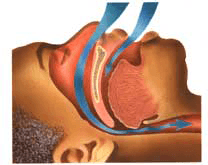 Normal respiration involves the unimpeded flow of air from your nose or mouth down your throat, through your windpipe, and into your lungs.
Normal respiration involves the unimpeded flow of air from your nose or mouth down your throat, through your windpipe, and into your lungs.
Along this path to your lungs the back of the throat is the narrowest point where an impediment to normal breathing is most likely to occur.
During your waking hours your muscles maintain a degree of rigidity that helps to allow the free flow of air from your nose to your lungs.
During sleep these muscles begin to relax and this causes the opening in your airway to become more narrow.
If the space in your airway becomes too narrow the soft palate begins to vibrate as air is forcefully pushed through this narrow path. The tongue can also fall back against the soft palate making the problem worse. The combination of these factors causes the loud night breathing known as snoring.
Sometimes people seem to snore for no apparent reason whatsoever. Looks can often be deceiving. No part of the human body exists in an isolated bubble and this includes the airway and soft palate where nightly snoring occurs.
Snoring is often times a symptom of a bigger health issue, and other health-related issues can actually worsen snoring or cause it to appear when normally it would not be present.
| Cause Of Snoring: | Description: |
|---|---|
Aging | Individuals over 60 years of age are more likely to snore or suffer from sleep apnea |
Drug And Alcohol Use | Alcoholic beverages as well as certain drug especially those that depress the Central Nervous System can encourage muscle relaxation in the airway. Often times individuals who don't normally snore might find themselves sounding like a chainsaw after a long night of consuming alcohol. |
Heriditary or Genetic Factors | Men typically have smaller passages in there airway then women. Other hereditary factors might include large adenoids which contribute to snoring. |
Obesity | Obese or overweight individual are more susceptible to snoring due to excess adipose tissue around the neck area putting additional pressure on the muscles in the throat. |
Obstructive Sleep Apnea | Perhaps the primary culprit behind many circumstances of nightly snoring. Snoring is a symptom of this very dangerous disorder. |
Sinus Problems | Sinus problems can block the airway and make it difficult to breathe. This can cause you to snore as a vacuum is created inside the throat. |
Sleep Posture | Back sleepers are more likely to snore than people who sleep on there side of stomach. |
Often times there isn’t a single cause behind you or your partner’s snoring.
Sometimes it is a variety of factors working together. If an individual is overweight, drinks habitually, and is over 60 the risk factor is very high. In contrast, a 20 year old woman who avoids alcohol and maintains a healthy BMI is at relatively low risk.
Related Health Issues
Nightly snoring can also contribute to, and is often correlated with many other potentially serious health problems. Treating snoring using an anti-snoring aid such as a mouth guard, or CPAP machine can reduce your risk for the following.
- Heart Disease And Stroke – If this isn’t a compelling reason to stop snoring, then nothing is. Researchers have conclusively linked nightly snoring to a higher risk of heart disease and stroke. The vibration caused by snoring can cause inflammation on the carotid arteries (arteries which carry blood from the heart to the brain) which can lead to lasting damage.
- Diabetes – Oxford Researchers have found a strong correlation between snoring and diabetes. During a 10 year follow up they discovered that women who snored were at a 5 times higher risk for diabetes than those who didn’t.
- Pregnancy Complications – Snoring has been correlated with low birth weight and a much higher risk for birth by caesarean section.
Lastly, we have Obstructive Sleep Apnea (OSA) which is the disorder most commonly associated with snoring.
What Is Obstructive Sleep Apnea?
Obstructive Sleep Apnea is a disorder characterized by loud nightly snoring with periodic apnea episodes throughout the night.
During an apnea episode the individual actually stops breathing for a short amount of time. This causes the brain to send a signal to increase the muscle rigidity in the airway which often leads to periods of unrest and wakefulness during the night for the sufferer.
Not all individuals who snore have Obstructive Sleep Apnea, but nearly all individuals with OSA snore. Snoring is one of the primary symptoms along with periods of not breathing throughout the night. Individuals who are suspected to have OSA will undergo a sleep study known as a Polysomnography.
Other Symptoms Of OSA Include
- Excessive daytime sleepiness
- Memory retention problems
- Depression
- Irritability
- Lack of restful sleep, and waking up frequently during the night
OSA is highly under diagnosed. Some researchers have concluded that just over 30 million Americans suffer from OSA. This accounts to nearly 10% of the population and roughly 1/3rd of snorers.
The statistics for other countries such as Canada, The United Kingdom, Australia, and New Zealand reflect similar trends.
What Treatments Or Remedies Are Available?
Mandibular Advancement Devices (MAD)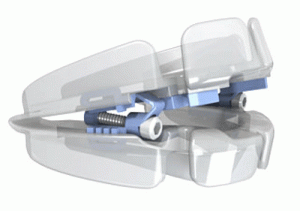
– Also known as mouthpieces, mouth guards, or oral appliances are devices worn in the mouth that work by advancing the lower jaw forward and/or retaining the tongue in a fixed position.
When the lower jaw is advanced this increases the gap in the airway to reduce the likelihood that the soft palate will vibrate.
These are the most cost efficient snoring aids that are available to anyone prescription free. These are usually not intended to treat severe OSA and can be helpful in mild-medium cases, or for snorers who do not suffer from OSA.
Some examples of these snoring devices include Zyppah, Vital Sleep, ZQuiet, and Good Morning Snore Solution. Both are highly recommended products that have a long history of helping snorers improve their quality of life and overall happiness.
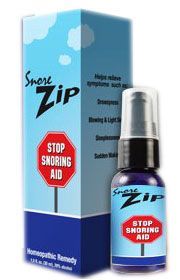
Nasal Sprays
– Intended for treating snoring due to nasal congestion issues. These products are generally not recommended for habitual snorers or OSA sufferers.
 Snoring T-Shirts And Belts
Snoring T-Shirts And Belts
– Intended for the treatment of snoring in people who prefer to sleep on there back.
The idea behind these devices is that by affixing some kind of ball or object to the back of a shirt or belt that is worn it forces to individual to roll on there side in case they unconsciously attempt to move on there back while asleep.
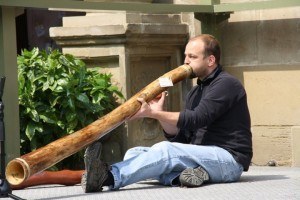 Exercises and Alternative Treatments
Exercises and Alternative Treatments
– Exercises that are often used by vocalists are sometimes considered useful to help strengthen the muscles in the throat to prevent snoring.
Playing an Australian Aboriginal instrument known as the didgeridoo has also been shown to strengthen these muscles as well. Most eBooks on how to stop snoring focus on these exercises.
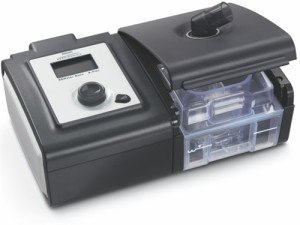 CPAP/BiPAP/APAP
CPAP/BiPAP/APAP
– Prescription only devices typically used for diagnosed Obstructive Sleep Apnea patients.
PAP (Positive Airway Pressure) machines such as CPAP, BiPAP, and APAP work by forcing pressurized air through a machine into your airway while you sleep. The pressure keeps the airway open and prevents the muscles in the throat from collapsing.
Other Devices
– Other devices include stop snoring pillows, and chin straps. These devices are generally not recommended by many users, although some individuals have claimed success with these products.
Frequently Asked Questions (FAQ)
Q: If I snore does that mean I have Obstructive Sleep Apnea?
A: Not necessarily. While virtually all individuals with OSA are frequent or habitual snorers, many individuals who snore do not have OSA. OSA is categorized by apnea episodes throughout the night. It’s possible to snore due to vibrations in the soft palate, but never actually suffer from periods without breath. Apnea literally means “without breath”.
Q: Do these snoring mouthpieces actually work or is it all just hype?
A: These mouthpieces work have been used successfully for many people, however your success rate will depend on the nature of your snoring and the severity. They are generally not recommended for individuals with severe sleep apnea, and make no mistake if you have Central Sleep Apnea or sinus issues these will be of no use to you.
Q: If Jeff a doctor or medical professional?
A: Jeff is a fellow snorer just like you, and he created this site out of a passion for educating others about this often embarrassing, sometimes ridiculed, and all too serious problem. The information on this site has been well researched, but it is not intended under any circumstance what so ever to replace the advice of your doctor.
Q: Where can I purchase a stop snoring aid or device?
A: You can view our product reviews section to read about the numerous devices available, or alternatively you can just skip to our top 3 anti-snoring product showdown if you’re pressed for time and just want to find the best of the best.
Q: My husband or wife snores at night how can I talk to them about this without offending them?
A: This is a difficult subject to broach without knowing the nature of your relationship. I always recommend that people approach this subject from a perspective of caring concern. Avoid using 2nd person language if at all possible. Rather than say, “you’re snoring is keep me awake at night” it’s much better to word it was “I noticed you were snoring, I am worried it could be a sign of sleep apnea.” Never blame the snorer for your lack of sleep or make them feel guilty. If you really want to help them do it in a loving way and point them to this resource so they can consider whether or not they want to use product such as a mandibular advancement device to treat the problem.
Further Reading
If you’ve made it this far you’re probably an encyclopedia of knowledge regarding everything snoring and sleep apnea. If you are serious about drastically improving your quality of life and treating this problem once and for all please visit our snoring mouthpiece reviews to learn more about how mandibular advancement devices (MAD) work.
If you feel like you’ve still got some more research to do before you decide on a treatment option feel free to browse our blog where you’ll find many of the subjects discussed here in much greater detail.
Resources:
http://qjmed.oxfordjournals.org/content/93/10/647.long
http://sleepfoundation.org/sleep-disorders-problems/other-sleep-disorders/snoring





